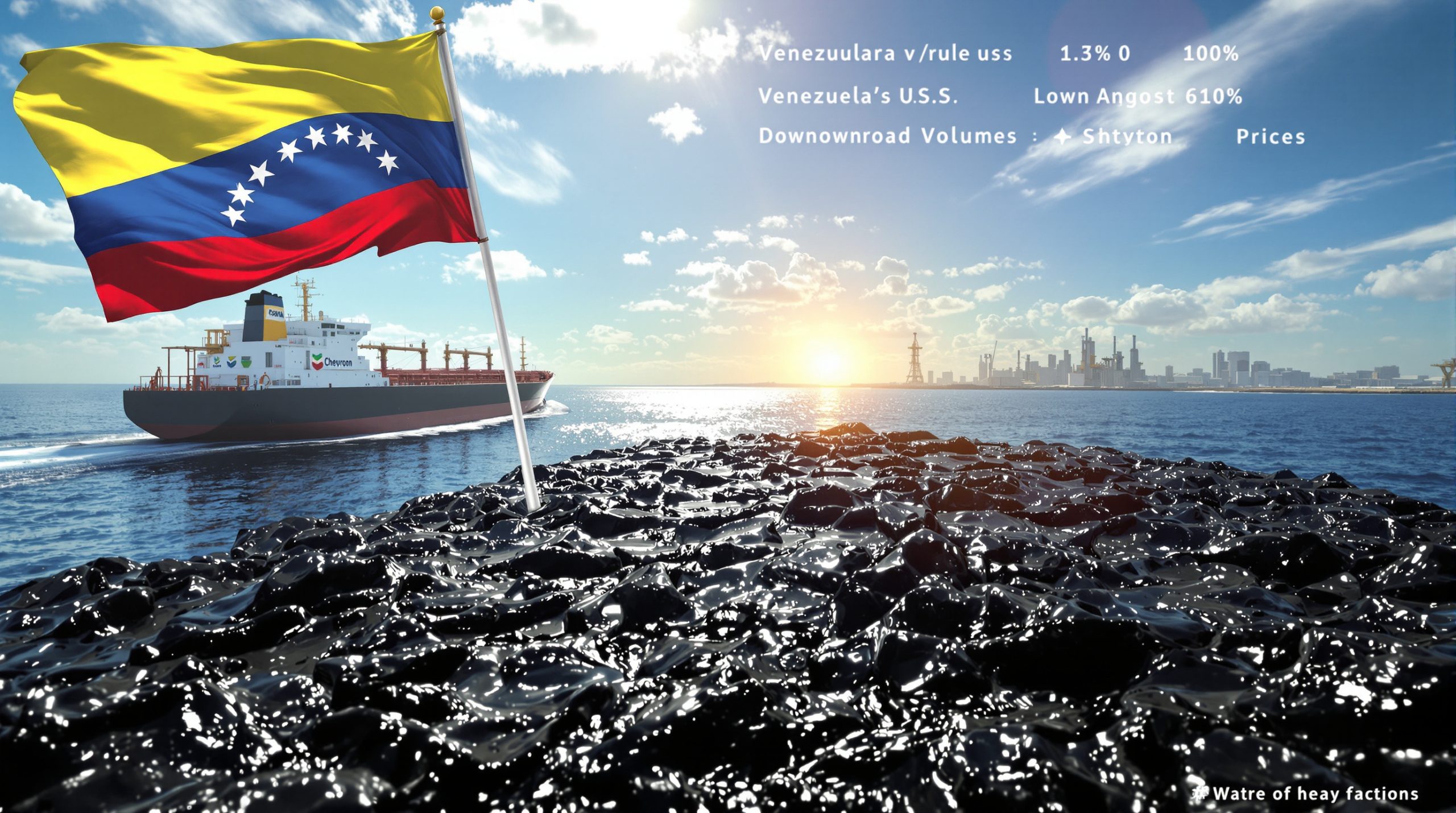What is the FRC Investigation into Deloitte's Glencore Work?
The Financial Reporting Council (FRC) has launched a significant investigation into Deloitte's audit work for mining and commodities giant Glencore. This probe examines statutory audits spanning an eight-year period from 2013 to 2020, focusing on whether Deloitte properly assessed legal compliance risks during its work. The investigation comes amid a backdrop of multiple regulatory issues for the FTSE 100 mining giant, including bribery cases across several jurisdictions.
The Investigation's Scope and Timeline
What Exactly is the FRC Investigating?
The Financial Reporting Council is examining Deloitte's statutory audits of both Glencore plc and Glencore Energy UK Limited for the financial years 2013 to 2020. According to the FRC announcement, investigators are specifically assessing "whether the auditor gave adequate consideration to the risk of non-compliance with laws and regulations" during these engagements.
This eight-year timeframe coincides with a period when Glencore faced mounting legal scrutiny across multiple jurisdictions, making the audit firm's risk assessment procedures particularly relevant.
Why Was the Investigation Launched Now?
The timing of the investigation follows several years of regulatory actions against Glencore. The FRC explicitly cited Glencore being "subject to investigations by government agencies into misconduct" as the primary catalyst for launching this probe into Deloitte's audit work.
The investigation appears strategically timed after several major legal settlements by Glencore had been concluded, giving investigators clarity on the scope of misconduct that potentially should have been identified during audit procedures.
Glencore's History of Regulatory Issues
Recent Legal Troubles and Penalties
Glencore has faced a series of significant legal challenges in recent years that have resulted in substantial financial penalties:
- UK Serious Fraud Office charges: The SFO charged five former Glencore employees with allegations related to corrupt payments benefiting the company's oil operations in West Africa
- Swiss penalties: Swiss authorities imposed a fine and compensation totaling approximately £119 million following an investigation into bribery of a Congolese public official by a Glencore business partner in 2011
- London court judgment: A UK subsidiary of Glencore was ordered to pay £281 million over an international bribery scandal where staff allegedly paid nearly $29 million in bribes to officials across Africa
"Glencore's pattern of regulatory issues across multiple jurisdictions raises serious questions about its compliance culture and the effectiveness of its internal controls during the period under investigation," noted industry compliance expert Sarah Johnson in a recent assessment.
These penalties demonstrate the scale of Glencore's legal issues and highlight why auditors might have been expected to identify compliance risks during their audit work.
The Scale of Glencore's Operations
Glencore operates as one of the world's largest commodity trading houses with extensive operations including:
- Coal mining facilities across multiple continents
- Global energy trading networks spanning over 35 countries
- International shipping operations handling millions of tons of commodities annually
- A trading and marketing arm that handles hundreds of billions of dollars in commodity transactions each year
This global footprint creates inherent compliance risks due to operations in jurisdictions with varying levels of regulatory oversight and corruption challenges. Auditors must consider these factors when designing their audit procedures.
Deloitte's Audit Responsibilities and History
The Auditor's Role in Detecting Misconduct
International Standard on Auditing (ISA) 250 requires auditors to:
- Obtain an understanding of the legal and regulatory framework applicable to the entity
- Gain sufficient evidence regarding compliance with those laws and regulations
- Perform specified audit procedures to identify instances of non-compliance
- Respond appropriately when non-compliance is identified or suspected
The investigation centers on whether Deloitte adequately fulfilled these responsibilities during its audits of Glencore, particularly in light of the company's subsequent legal issues.
Key audit considerations should have included:
- Assessing Glencore's operations in high-risk jurisdictions
- Evaluating internal whistleblower reports or compliance concerns
- Testing controls around facilitation payments and third-party relationships
- Reviewing unusual payment patterns or transactions
Deloitte's Regulatory Track Record
This investigation adds to Deloitte's regulatory challenges:
- The Big Four firm has received four sanctions over the past five years
- These sanctions have resulted in fines (post-discount) totaling over £18.5 million
- Prior cases involved audit failures at other major corporations, though none specifically related to commodities trading
This history of regulatory action means the FRC will likely scrutinize Deloitte's quality control procedures and whether the firm implemented appropriate improvements following previous sanctions.
Potential Implications of the Investigation
For Deloitte
If the FRC finds deficiencies in Deloitte's audit work, potential consequences could include:
- Financial penalties: Recent FRC fines against Big Four firms have frequently exceeded £10 million for serious audit failures
- Reputational damage: Major clients may reconsider their audit appointments following significant sanctions
- Remedial requirements: The FRC could mandate specific improvements to Deloitte's audit methodology regarding compliance risk assessment
- Individual sanctions: Partners responsible for the Glencore audits could face personal penalties and practice restrictions
Industry analysts note that the cumulative effect of multiple sanctions can lead to increased regulatory scrutiny across a firm's entire client portfolio.
For Glencore
While the investigation focuses on Deloitte's work rather than Glencore directly, the mining giant may face:
- Enhanced scrutiny: Investors may question the reliability of financial statements during the period under investigation
- Governance reforms: Shareholders could push for additional board-level oversight of compliance matters
- Market reaction: Share price volatility may occur as investigation developments emerge
- Disclosure requirements: Future financial statements may need expanded disclosure regarding the investigation and its findings
The investigation creates uncertainty at a time when Glencore has been working to rebuild its compliance reputation following multiple legal settlements. Investors should be wary of potential investment red flags that might emerge from this scrutiny.
For the Broader Audit Industry
The investigation highlights several industry-wide concerns:
- The growing "expectations gap" between what stakeholders believe auditors should detect versus auditing standards requirements
- Whether current audit methodologies adequately address corruption and bribery risks in multinational corporations
- The effectiveness of audit firm quality control procedures in high-risk client engagements
- The need for specialized industry knowledge when auditing complex global businesses
This case could potentially influence future auditing standards regarding compliance risk assessment, particularly for clients operating in high-risk jurisdictions. Furthermore, the industry evolution trends will likely be influenced by such regulatory developments.
The Broader Context of Audit Reform
Ongoing Regulatory Changes
The FRC investigation comes amid significant changes in the UK audit regulatory landscape:
- The planned transformation of the FRC into the Audit, Reporting and Governance Authority (ARGA) with enhanced enforcement powers
- Implementation of operational separation between audit and consulting functions at major firms
- Increased focus on audit quality indicators and transparent reporting of inspection findings
- Growing pressure for mandatory rotation of audit firms to enhance independence
These reforms aim to address perceived weaknesses in the audit market following high-profile corporate failures like Carillion and BHS.
International Dimensions
The cross-border nature of both Glencore's operations and the various investigations highlights:
- The challenge of coordinating regulatory responses across jurisdictions with different legal standards
- Difficulties auditors face in evaluating compliance with diverse and sometimes contradictory legal frameworks
- Growing international cooperation between audit regulators through the International Forum of Independent Audit Regulators (IFIAR)
- The increasing importance of specialized forensic skills within audit teams serving multinational clients
These international complexities make the FRC's investigation particularly significant as a test case for how audit regulators approach multijurisdictional compliance failures. Additionally, the executive order impact on mining regulations in other jurisdictions may further complicate the regulatory landscape.
Responses to the Investigation
Deloitte's Position
In response to the investigation announcement, a Deloitte UK spokesperson stated: "We are committed to the highest standards of audit quality and will fully co-operate with the Financial Reporting Council."
The firm has not provided specific details about its audit approach for Glencore or any compliance concerns identified during the audit periods in question. This is typical during ongoing investigations where confidentiality requirements limit public disclosures.
Industry Reactions
The investigation has prompted discussions within the audit profession about:
- Whether current audit methodologies sufficiently address bribery and corruption risks
- The need for enhanced training for auditors working in high-risk industries and jurisdictions
- Potential revisions to professional standards regarding the detection of illegal acts
- The appropriate balance between audit firm responsibility and management's primary role in preventing misconduct
Professional bodies like the Institute of Chartered Accountants in England and Wales (ICAEW) have emphasized the importance of maintaining public confidence in the audit process while acknowledging the inherent limitations in detecting well-concealed fraud or corruption.
FAQ: Understanding the FRC Investigation into Deloitte's Glencore Audits
What powers does the FRC have when investigating auditors?
The FRC has significant investigative powers, including the ability to:
- Compel the production of documents and information from audit firms and their clients
- Interview relevant individuals, including audit partners and client personnel
- Access internal firm communications and working papers
- Impose substantial financial penalties (exceeding £10 million in serious cases)
- Require remedial actions or restrictions on future audit work
- Issue public reprimands that can damage firm reputation
- Refer cases to other regulatory or law enforcement agencies when appropriate
These powers have been strengthened in recent years following criticism that the regulator lacked sufficient enforcement teeth.
How long do FRC investigations typically take?
FRC investigations vary significantly in duration depending on complexity, but major investigations often take 1-3 years to complete. Factors that may extend this timeline include:
- The eight-year period under review (2013-2020)
- The international scope of Glencore's operations across dozens of countries
- The volume of audit documentation requiring review
- Coordination with other regulatory investigations
- The need to interview multiple current and former personnel
- Potential legal challenges to information requests
Stakeholders should expect periodic updates but recognize that the full investigation may not conclude until 2026-2027.
Does this investigation suggest problems with Glencore's financial statements?
The investigation focuses on Deloitte's audit work rather than directly examining Glencore's financial statements. However, potential outcomes include:
- Finding no deficiencies in Deloitte's work, which would provide additional confidence in Glencore's historical financial reporting
- Identifying audit procedure deficiencies that nevertheless did not impact financial statement accuracy
- Discovering significant audit failures that raise questions about certain financial statement elements or disclosures
It's important to note that an audit failure does not automatically indicate financial misstatement, as it may reflect procedural deficiencies rather than incorrect financial reporting. However, industry consolidation trends could be influenced by how investors perceive such regulatory scrutiny.
How does this investigation relate to Glencore's other legal issues?
While separate from Glencore's direct legal challenges, the FRC investigation examines whether Deloitte adequately considered the risk of legal non-compliance during audits. Key connections include:
- The investigation period (2013-2020) overlaps with the timeframe when Glencore's legal violations occurred
- Auditors are required to design procedures to identify potential non-compliance with laws and regulations
- The scale of penalties paid by Glencore (over £400 million combined) suggests significant violations that might have generated red flags during audits
- The geographic spread of corruption allegations aligns with high-risk jurisdictions where enhanced audit procedures would typically be expected
The investigation appears to have been prompted by Glencore's pattern of regulatory issues across multiple jurisdictions, raising questions about whether these should have been detected earlier. The impact of new mining permits orders might also affect how such investigations proceed in the future.
Further Exploration
Readers interested in learning more about corporate accounting investigations can also explore related educational content on audit quality and regulatory enforcement, which regularly covers developments in the energy and commodities sectors, including regulatory matters affecting major industry players. According to the UK Financial Reporting Council, this investigation marks a significant step in their oversight of auditing practices for multinational corporations.
For commodities investors, this investigation highlights the importance of considering regulatory compliance when evaluating sector investments. Companies operating in high-risk jurisdictions require robust compliance frameworks that go beyond minimum requirements, as the financial and reputational costs of failures can be substantial. As The Guardian reported, the scale of this investigation is unusually large, covering eight years of audit work.
Disclaimer: This article provides analysis based on publicly available information about an ongoing regulatory investigation. Findings and outcomes may differ from the analysis presented here. Investors should conduct their own due diligence before making investment decisions related to companies mentioned in this article.
Want to Discover the Next Major Mining Opportunity Before the Market?
Discovery Alert's proprietary Discovery IQ model instantly notifies investors of significant ASX mineral discoveries, transforming complex data into actionable insights for both short-term traders and long-term investors. Explore historic discovery returns and begin your 30-day free trial at Discovery Alert's discoveries page to position yourself ahead of the market.




